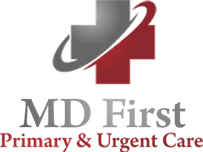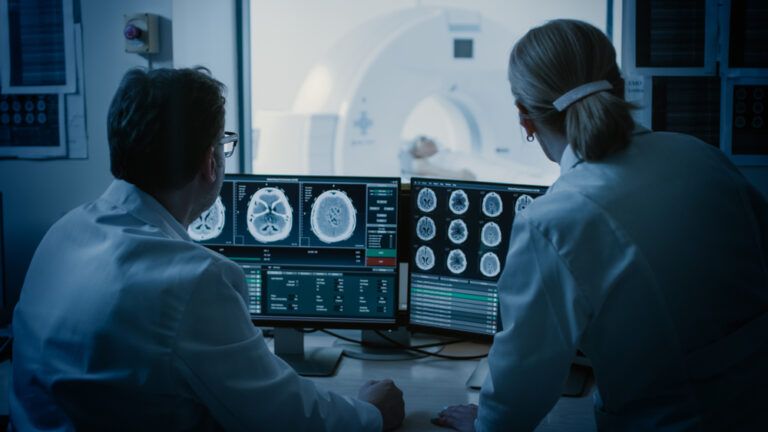Cancer is one of the leading causes of death worldwide. However, with advancements in medical technology and a focus on prevention, early detection can significantly improve the chances of successful treatment. At MD First Primary and Urgent Care in Lancaster, SC, Dr. Amrendra Kumar and his team emphasize the importance of regular cancer screenings to detect cancers in their earliest stages when treatment options are most effective. This blog explores the critical role of cancer screenings, the types of screenings available, and why making time for them can make all the difference.
Why Cancer Screenings Matter
Cancer screenings are essential because they allow for the detection of cancer before symptoms appear. In the early stages, many cancers do not cause noticeable symptoms, and by the time they do, the disease may have advanced, making treatment more difficult. Regular screenings provide a proactive approach to detect cancer early, when it’s most treatable. Early intervention can lead to better outcomes and often results in a higher survival rate.
Screening for cancer helps identify abnormal changes in the body that could be indicative of cancer. For example, mammograms can detect early-stage breast cancer, and colonoscopies can identify colorectal cancer in its early phases. In some cases, screenings can find precancerous conditions that may develop into cancer, offering an opportunity to address these concerns before cancer develops.
Types of Cancer Screenings
There are various types of cancer screenings available, and the right screening for you depends on factors such as age, gender, family history, and overall health. Below are some of the most common cancer screenings that Dr. Amrendra Kumar and his team recommend at MD First Primary and Urgent Care.
Breast Cancer Screening
Breast cancer is one of the most common cancers among women. Regular screenings, such as mammograms, are vital for detecting breast cancer early. Women are generally advised to begin mammogram screenings at age 40, but those with a family history of breast cancer may need to start earlier. Mammograms are used to detect lumps or abnormalities in the breast tissue, which may indicate cancer.
- Self-breast exams: While not a substitute for mammograms, women should also perform regular self-breast exams to check for lumps or changes in breast tissue.
- Clinical breast exams: A healthcare provider may also perform a physical exam to check for abnormalities.
Colorectal Cancer Screening
Colorectal cancer is another common type of cancer, particularly in individuals over 50 years old. Early screening through a colonoscopy can detect abnormal growths, such as polyps, which may develop into cancer if left untreated.
Colonoscopies involve using a thin, flexible tube with a camera to view the colon and rectum. It is recommended that adults begin screening for colorectal cancer at age 45. For individuals with a family history of colorectal cancer, screening may need to begin earlier.
Cervical Cancer Screening
Cervical cancer screenings, including Pap smears and HPV (human papillomavirus) testing, are crucial for detecting cervical cancer and its precursors. The Pap smear is a test where cells from the cervix are collected and examined for abnormalities. The HPV test checks for the presence of the virus that can cause cervical cancer.
Women should start having Pap smears at age 21 and continue until age 65. In some cases, women may also be advised to get an HPV test, especially if they are at higher risk for cervical cancer.
Prostate Cancer Screening
Prostate cancer is one of the most common cancers among men. Screening for prostate cancer typically involves a blood test known as the prostate-specific antigen (PSA) test. This test measures the levels of PSA, a protein produced by the prostate gland. Elevated PSA levels can indicate prostate cancer, but further testing may be necessary for a definitive diagnosis.
Men who are at higher risk for prostate cancer—such as those with a family history—should discuss screening with their healthcare provider, especially after age 50.
Lung Cancer Screening
Lung cancer is one of the deadliest cancers, but it can often be detected early in people who are at high risk. If you are a smoker or have a history of heavy smoking, annual low-dose CT (computed tomography) scans may be recommended to check for early signs of lung cancer. Early detection of lung cancer increases the likelihood of successful treatment.
Lung cancer screenings are typically recommended for individuals aged 55 to 80 with a history of heavy smoking. If you have other risk factors, such as exposure to certain chemicals or a family history of lung cancer, it’s important to discuss your screening options with your doctor.
The Role of Regular Health Check-ups
In addition to cancer screenings, regular health check-ups play a crucial role in maintaining overall health and preventing cancer. A routine check-up allows your healthcare provider to assess your risk factors, monitor any changes in your health, and recommend screenings or lifestyle changes as necessary.
Health check-ups may include blood pressure measurements, cholesterol checks, diabetes screening, and cancer screenings, among other assessments. These exams provide an opportunity for you and your doctor to discuss any concerns and ensure that you are taking steps toward prevention.
Factors That Influence Cancer Screening Recommendations
Cancer screening guidelines can vary depending on various factors. It’s important to consider the following when determining when to start cancer screenings:
- Age: Screening guidelines often recommend starting at a certain age. For example, mammograms are usually recommended at age 40, while colonoscopies start at age 45.
- Family history: A family history of cancer can increase your risk. If you have close relatives who have had cancer, you may need to begin screening at an earlier age or undergo more frequent screenings.
- Gender: Certain cancers, like breast and prostate cancer, are gender-specific, which impacts screening recommendations.
- Lifestyle factors: Smoking, excessive alcohol consumption, and a poor diet can increase the risk of cancer, which may prompt earlier or more frequent screenings.
Discussing your individual risk factors with Dr. Amrendra Kumar at MD First Primary and Urgent Care in Lancaster, SC, can help determine the appropriate screening schedule for you.
Overcoming Common Barriers to Cancer Screenings
Despite the importance of cancer screenings, many people delay or avoid them due to various reasons. Some of the most common barriers to cancer screenings include:
- Fear: Many individuals are afraid of receiving a cancer diagnosis, which can lead them to avoid screenings altogether. However, the earlier cancer is detected, the higher the chances of successful treatment.
- Cost: Some people may avoid screenings because they are concerned about the cost. Fortunately, many insurance plans cover cancer screenings, and there are programs that provide free or low-cost screenings for those in need.
- Lack of awareness: Some individuals may not be aware of the recommended screening guidelines or the importance of early detection. Educating yourself and your loved ones about cancer screenings is crucial to ensuring everyone’s health.
- Inconvenience: Scheduling and attending screenings may seem time-consuming, but the benefits far outweigh the inconvenience. Many screenings, like mammograms or colonoscopies, are quick and minimally invasive.
At MD First Primary and Urgent Care, Dr. Amrendra Kumar and his team aim to make cancer screenings as accessible and convenient as possible. They provide guidance, support, and resources to help you navigate the screening process with ease.
Take Action: Prioritize Your Health
Cancer screenings are not just about identifying cancer; they are about empowering individuals to take control of their health. Early detection through regular screenings can significantly increase the chances of successful treatment and can save lives. If you are in Lancaster, SC, Dr. Amrendra Kumar at MD First Primary and Urgent Care is here to help guide you through the process of cancer prevention and detection. Regular screenings are one of the most effective ways to ensure a long and healthy life.
Schedule Your Screening Today
If you’re due for a cancer screening or would like to learn more about the screenings recommended for you, don’t hesitate to reach out to Dr. Amrendra Kumar at MD First Primary and Urgent Care. Call today to schedule your appointment and take the first step toward better health.
Sources:
- American Cancer Society. (2020). “Cancer Screening Guidelines.” American Cancer Society.
- National Cancer Institute. (2023). “Cancer Screening Overview.” National Institutes of Health.
- Smith, R. A., Andrews, K. S., Brooks, D., et al. (2018). “Cancer Screening in the United States, 2018: A Review of Current Guidelines.” Journal of Clinical Oncology.




